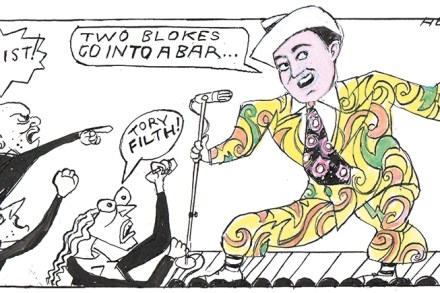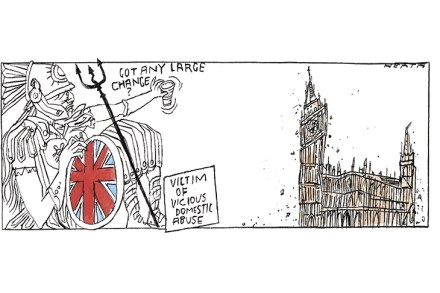The pandemic’s invisible victims
I sometimes pick up some food at Tesco for an 86-year-old pensioner who lives a few streets over. At the weekend, I brought him milk and cornflakes. He opened his front door; I put the bags down, retreated the required two metres, but when I looked up he was in tears. ‘I’m sorry,’ he said, quietly. ‘I’m just so lonely at the moment.’ Should I have moved closer, put my arm around him? At the moment the risk of passing on the virus is low in London. I’ve had the bug (I think) and I used hand gel after leaving the supermarket. It’s been said of the recent protests that




















